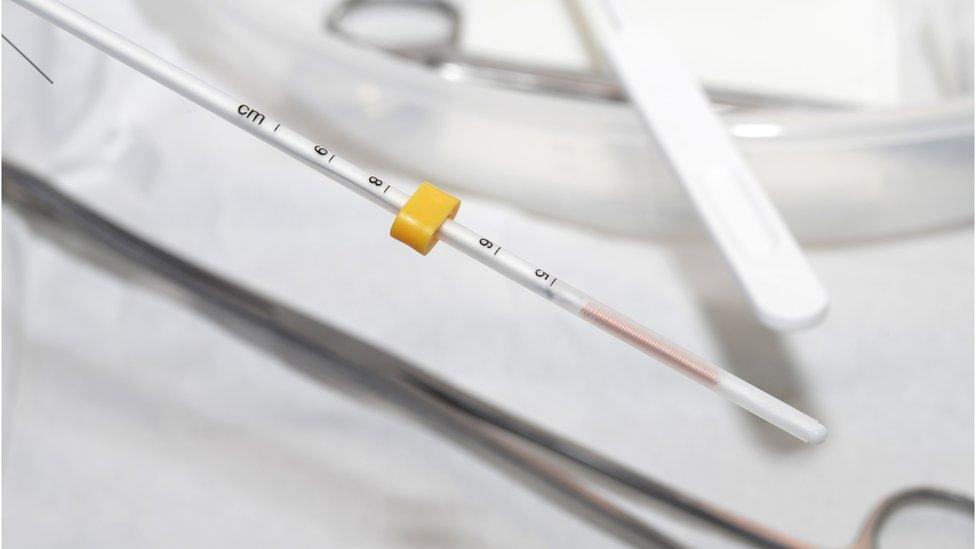Coil 'better than morning-after pill'
- Published

Women should be advised that the coil is a more effective form of emergency contraception than the morning-after pill, new guidance says.
It has been "good practice" to offer the coil for a decade.
But the National Institute for health and Clinical Excellence (NICE) says advice on the issue needs to improve.
In 2014-15, 95% of women given emergency contraception by sexual and reproductive health services received the morning-after pill.
The coil, also known as an intrauterine device or IUD, is effective if inserted within five days after unprotected sex
IUDs must be fitted by a specially trained doctor or nurse, at a sexual health clinic or GP surgery.
If an appointment is not possible within the five days, a woman may be advised to take the morning-after pill before they have the IUD fitted.
'Timing essential'
Sue Burchill, head of nursing at Brook, which provides sexual health services to about 25,000 under-25s each year, said: "We believe all young people should be provided with accurate information about the different methods of emergency contraception available in order to make an informed choice about what is best suited to their individual needs, and we would urge local authorities not to jeopardise this by making cuts to funding for sexual health services.
"We know that the coil is the most effective method of emergency contraception available, so we must all continue to ensure that ease of access to this method is increased and maintained across services from a variety of providers."
Prof Gillian Leng, deputy chief executive of NICE, said: "It is really important that all contraceptive services are providing women with the best advice about contraception.
"We also want to ensure women are told the coil is more effective than the pill as emergency contraception."
Dr Jan Wake, a GP and member of the guideline development group, said: "Timing, however, is essential, and women deciding on the coil should make contact with the clinic they have been advised to attend as soon as is possible."